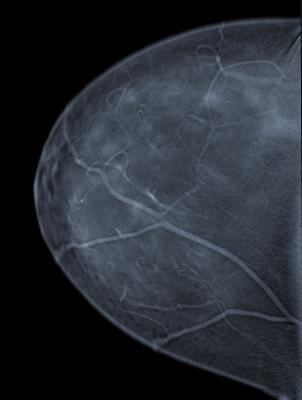
Photo courtesy of Barco
An analysis of breast cancer data revealed that many small breast cancers have an excellent prognosis because they are inherently slow growing, according to Yale Cancer Center experts. Often, these cancers will not grow large enough to become significant within a patient's lifetime and subsequently early detection could lead to overdiagnosis, said the reseachers. In contrast, large tumors that cause most breast cancer deaths often grow so quickly that they become intrusive before they can be detected by screening mammography, they note.
The study, published June 8 in the New England Journal of Medicine, questions the value of breast cancer early detection.
"Our analysis explains both how mammography causes overdiagnosis and also why it is not more effective in improving outcomes for our patients. More importantly, it questions some of our fundamental beliefs about the value of early detection," said Donald R. Lannin, M.D., professor of surgery at Yale School of Medicine and lead author on the paper.
The research team analyzed invasive breast cancers diagnosed between 2001 and 2013 in the Surveillance, Epidemiology, and End Results (SEER) database and divided them into three prognostic groups based on biologic factors: grade, estrogen receptor (ER) status, and progesterone-receptor (PR) status. The three biologic categories were defined as favorable, intermediate, and unfavorable.
The team, which also included Shiyi Wang, M.D., assistant professor of epidemiology at Yale School of Public Health, then used the expected rate of overdiagnosis of 22% to model the types of breast cancers and patient age ranges that likely account for the majority of overdiagnosis. The results showed that most overdiagnosis occurred in older patients with biologically favorable, slow-growing tumors.
"Until now, we thought that the lead time, or time until a cancer becomes problematic for a patient, for most breast cancers was about three or four years. This paper shows that lead times vary widely depending on the tumor type. A large portion of aggressive cancers have a lead time of two years or less, whereas another large portion of breast cancers grow so slowly that the lead time is 15 to 20 years," Lannin explained.
"It is important that we educate physicians, patients, and the public on the indolent, slow-growing nature of some breast cancers. This knowledge will allow us to individualize treatment options, provide 'personalized medicine,' and avoid the major harms of overdiagnosis, which can result in overtreatment and the anxiety and fear that a cancer diagnosis causes," Lannin said.
For more information: www.nejm.org


 February 06, 2026
February 06, 2026 









